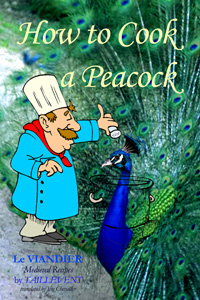cited in Edgar Allan Poe's "A Chapter on Autography"

HOME PAGE

MATHEWS, Cornelius 1817-1889 - In 1850, the Prompter described him as a “prolific” novelist and editor. The Southern Quarterly Review, in reviewing his collected works, said, “Mathews… is still, we understand, a very young man; yet here... He appears before us as critic and novelist; poet and dramatist; politician and essayist.” His works include Behemoth, or the mound-builders, Wakondah, the master of life, Moneypenny or, the Heart of the World, and The Politicians, a comedy and a book on International Copyright.
McHENRY, James 1785-1845 – Merchant, poet, novelist, editor and doctor, born Irish. In 1824 he edited Philadelphia’s American Monthly Magazine, for which he wrote "O'Halloran, or the Insurgent, a Romance of the Irish Rebellion”. Some other works were The Wilderness, or Braddock's Times, a Tale of the West (1823); A Spectre of the Forest, or Annals of the Housatonic (1823); and The Hearts of Steel, an Irish Historical Tale of the Last Century (1825). His poetry includes Waltham, an American Revolutionary Tale, in Three Cantos (1823) and The Usurper, an Historical Tragedy, in Five Acts, a successful play. A friend of Andrew Jackson, he published "Jackson's Wreath,” a poem (1829), in tribute to him.
MCJILTON, John Nelson 1805-1875 . Minister and poet. Little remains of his work today. Two works, both from 1846, which may be typical are Washington: the model of character for American youth: an address delivered to the boys of the Baltimore public school and “Day of Freedom” set to music by J.M. Deems. Though white, he was the pastor of two black churches, from at least 1843 to 1845. His name is on one of the Washington Memorial Stones as a Maryland Mason from the Grand Lodge of ancient Free and Accepted Masons of Maryland 1850. Poe suspected him in 1841 of being the author of a pseudonymous coded letter. McJilton denied this. He contributed to the Southern Literary Messenger while Poe was editor.
McMICHAEL Morton 1807-1879 - A journalist, he also served as alderman, sheriff and mayor in Philadelphia. In 1826 he became editor of the Saturday Evening Post. He later became sole proprietor of the North American and United States Gazette (1854) until his death
MELLEN, Grenville 1799-1841 – Poet. Son of a chief justice of the Supreme Court of Maine. He published poems in various periodicals and edited the Portland Advertiser and the Monthly Miscellany. He wrote of the young America: “Ours is the land and age of gold/ And ours the hallow’d time!”
MITCHELL, John Kearsley 1798-1858 - A physician who traveled three times to the East as ship’s surgeon, he settled in Philadelphia and taught successively at the Philadelphia Medical Institute and then Jefferson Medical College, while continuing to practice. In addition to poetry and a book On the Wisdom, Goodness, and Power of God as illustrated in the Properties of Water (1834), he anticipated more modern ideas on disease in On the Cryptogamous Origin of Malarious and Epidemic Fevers (1849).
MORRIS, George 1802-1864 - At 15, he was already writing for the New York Gazette and the American. In 1823 he co-founded the New York Mirror with Samuel Woodworth. Having served in the New York militia, he was generally addressed as General Morris. He wrote prose and verse works, but was most known as a song-writer, whose lyrics sold well for more than 20 years. Some popular ones were “Near the Lake where drooped the Willow,” "We were Boys together,” “My Mother's Bible,” "Whip-poor-Will,” and "Woodman, Spare That Tree,” which was quoted during a debate in the House of Commons.
MORRIS, Robert 1809-1874 - Editor of the daily Philadelphia Inquirer. He may have been that paper’s anonymous reviewer of Poe’s “Prose Romances”.
 the Bastille |
AUTOGRAPHY home page |

a Peacock |
Books |